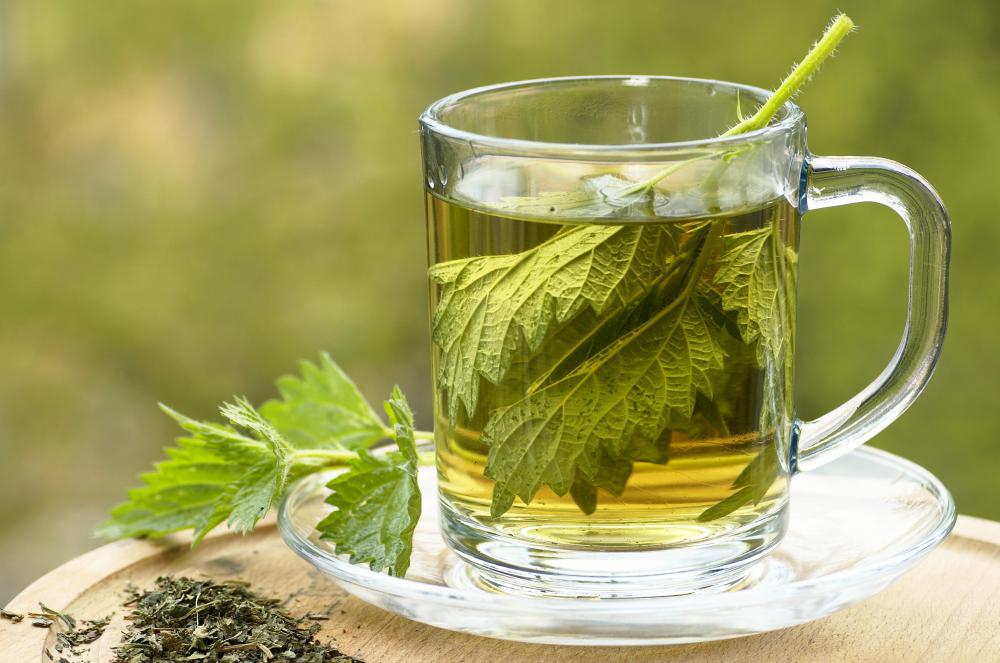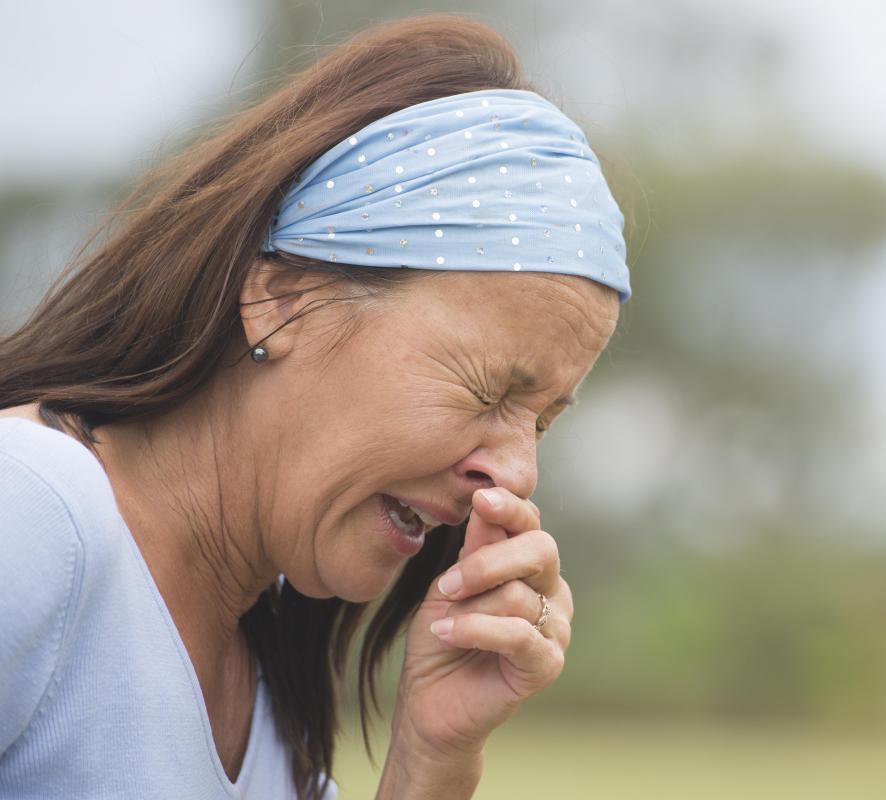At WiseGEEK, we're committed to delivering accurate, trustworthy information. Our expert-authored content is rigorously fact-checked and sourced from credible authorities. Discover how we uphold the highest standards in providing you with reliable knowledge.
What is Nettle Root Extract?
While the nettle plant is well known for its stinging hairs, the root of the nettle plant is used in many herbal remedies under the name nettle root extract, stinging nettle extract or nettle oil. Herbal remedies for cough suppression, hair loss and prostate health often contain the extract of the nettle root. Other parts of the nettle plant are also used as remedies, including the leaves or the stinging hairs. Nettle leaves have been used topically as an astringent, and stinging hairs have been used to treat skin conditions and relieve the pain of arthritis. While the nettle plant has been used in these various forms as an herbal remedy for centuries, recent medical studies have verified the effectiveness of this extract only as a diuretic.
Many modern herbal remedies contain medicinal nettle root extract. Nettle root tea commonly is used as an expectorant to relieve coughing or asthma symptoms. Nettle root capsules have also been used to reduce symptoms of hay fever, and nettle root may be used as a mild antihistamine, though these effects have not yet been proven conclusively. Nettle root is also an ingredient in topical treatments for hair loss, though these claims also have not been proven by clinical studies. The extract is sold in pills or tinctures taken internally as a diuretic and to improve prostate health.

There are many herbal remedies for weight loss and prostate health on the market that contain nettle root extract because of its diuretic properties. The claims that medicinal nettle extract may relieve symptoms of an enlarged prostate have been substantiated by some medical studies. The diuretic properties of this extract increase the flow of urine and may inhibit the growth of some prostate cells, although studies did not prove that nettle extract shrinks an already enlarged prostate. Stinging nettle extract, in combination with other herbs such as saw palmetto, is recommended as a dietary supplement in early cases of prostate enlargement for this reason.

Young nettle plants are also edible, and the culinary uses of nettle provide nutrients important for health. Like other leafy green plants such as spinach, nettle leaves are high in Vitamin C, Vitamin A, iron and potassium. These important nutrients may have been one of the reasons nettles were historically brewed into herbal tonics for the treatment of anemia and detoxification. Nettle leaves are also high in the green plant pigment chlorophyll, and the pigment can be easily extracted for commercial use.
AS FEATURED ON:
AS FEATURED ON:
















Discussion Comments
Stinging nettle herb is also beneficial for decreased libido and frequent night time urination. My husband experienced these bad side effects after using a medication to treat hair loss. He quit the drug but the side effects continued.
A homeopathy practitioner recommended nettle root extract to help treat these negative side effects of the drug. He has been taking nettle root extract for three weeks and is doing a lot better now. The frequency of urination has decreased and his libido is back to normal.
He did check with our family doctor before he started nettle supplements though. I think everyone should speak with their doctor before taking any supplements.
@alisha-- Yes, there are differences.
As far as I know, stinging nettle leaf contains more antihistamines and is often recommended for allergies, circulation problems and hair loss.
I've only heard of nettle root extract being used by breast cancer patients and by muscle builders. I think the root has compounds that affect reproductive hormones.
Is there any difference between nettle root extract and nettle leaf extract in terms of benefits?
Post your comments